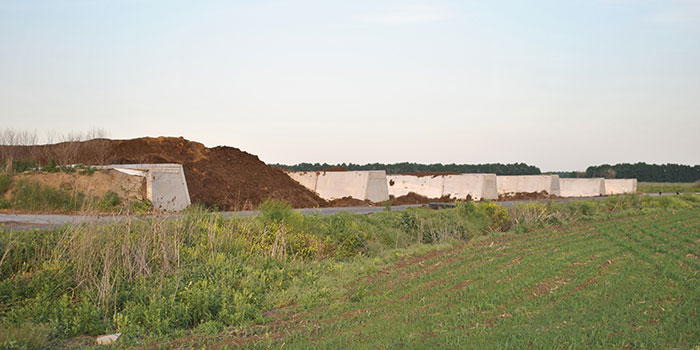web_blackearth-manurestorage2.jpg

Manure storage at Vinnytsia in Ukraine, Europe's largest chicken farm. Credit: CEE Bankwatch Network (CC-BY-SA-3.0)
Myronivsky Hliboproduct dominates Ukraine’s domestic poultry market and is controlled by Ukraine’s fifth wealthiest man Yuriy Kosyuk. It has received a total of $564m from three development banks – the European Bank for Reconstruction and Development, the International Finance Corporation (the private sector arm of the World Bank), and the European Investment bank. The EBRD contributed $205m of this, including an $85m loan in October 2015.
Kateryna Onopriienko, who lives close to a MHP site, today told the EBRD’s annual meetings in London that the bank should withdraw its support for the company.
Speaking to Public Finance International yesterday she said: “I have come here to let the EBRD know firsthand what is happening on the ground and not to invest in a company that has caused such damage to my community.”
None of the development banks have financed the projects that are being complained about directly, and the banks see MHP as a good source of employment and as supporting food security both in Ukraine and beyond.
MHP is currently planning an expansion that would see their operations double by 2018. This is proving controversial with local communities throughout Ukraine and many are already complaining about the drawbacks of the firm’s presence in their areas.
Monitoring group CEE Bankwatch and the Dutch Centre for Research on Multinational Corporations have both released reports documenting the complaints from communities living near to MHP’s Vinnytsia complex, which is the largest chicken farm in Europe. These include landowners under pressure to lease their land to the company on contracts lasting half a century.
Concerns raised by Onopriienko to PFI echo those from locals living near Vinnytsia and also include wells that provide drinking water being contaminated.
Natalia Kolomiets, environmental protection expert at the National Ecological Centre of Ukraine (NECU), said the involvement of international finance institutions should ensure companies are environmentally responsible and open to stakeholder engagements, but with MHP this has not happened.
It was not enough for MHP to be compliant with national legislation, she told PF International.
“The banks should be a leverage point that makes businesses more sustainable in places where legislation is not enough to protect local peoples’ rights. But in the case of MHP this has not happened,” Kolomiets said.
“We hardly see any value added by the banks’ investment in the company, so why should public money be used?”
An EBRD spokesman told PF International it was “very unfortunate” that NECU is repeating allegations that the bank has responded to many times. A recent EBRD review into MHP’s operations, triggered by the complaints, found that the company meets national legislative requirements and “to a large extent” good international practice.
However, it did suggest a number of improvements in areas ranging from the disclosure of information and land acquisition to manure management.
Anastasiya Sobotyuk, director of investor relations and internal communications at MHP, told PF International all the allegations are “groundless”.
“We care about our reputation, and therefore comply with all the requirements with regard to corporate social responsibility and environmental issues,” she said.
“Our enterprises create jobs for hundreds if not thousands of Ukrainians in rural areas. We pay the highest salaries and take care of our employees, as well as the villages they are coming from.”
Picture courtesy of CEE Bankwatch.













